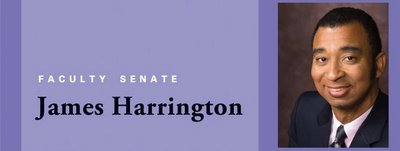May 3, 2007
Faculty Senate: Legislature’s budget good news for education, UW
Washington’s state Legislature adjourned sine die (without a plan for reconvening this session) on Sunday, April 22, right at the deadline for its session to end. Given the size and diversity of the UW, many of the measures considered by the Legislature have importance to each of us.
For us as a University, the most important measures are the Operating and Capital Budgets for the 2007-09 biennium. These budgets, settled at the last possible minute, are very good for education in general, including higher education, and including the UW. The Operating Budget calls for a 15 percent increase in the support from the state’s General (and “near-General”) Fund, from $701.6 million to $806.9 million.
The largest absolute increases were in allocated salaries (retaining the FY 2007 pay increase of 1.6 percent and allocating increases of 3.2 percent and 2 percent for the biennial years) and in additional student enrollments. These additional enrollments (1,750 over the two years, 500 of which are to be in math and science fields) are funded at a higher per-student level than our base enrollments. This, plus authorization for (resident undergraduate) tuition increases of up to 7 percent per year, is the state’s way of increasing our overall per-student funding.
Therein lies some of the best news from this session: The Legislature has formally agreed to increase the per-student funding for each of the six baccalaureate institutions to the 60th percentile of the range for peer institutions in a set of peer states, over 10 years. This formal agreement explicitly recognizes the link between General Fund support and tuition funds, and sets a limit of 7 percent annual increases in resident undergraduate tuition. In other words, this is a commitment to increasing per-student support from the General Fund, while increasing enrollments to come close to maintaining the current ratios of baccalaureate capacity to high-school graduates. This sounds simple, and it is, but getting this commitment into legislation was a major milestone. What actually happens depends on the state’s economy and political will.
Writing about political will brings me to how much I’ve learned in these past four months about the sources of political will in the legislative process. I could write — and scholars have written — pages and pages about this, but here I’ll note simply that elected officials listen to constituents and contributors.
The positions of the party caucus and the logic of good ideas matter as well, but I want to emphasize the importance of individuals contacting their legislators by e-mail or printed mail. To do that, individuals have to be informed. In future columns, I hope to address how we can each become informed. For now I’ll note that there is a wealth of information online, and to get you started, I’ll point out three URLs. The first is the home page for the Washington Legislature, http://www.leg.wa.gov. The other two are links to the final budget detail relating to the UW: the operating budget is at http://leap.leg.wa.gov/leap/budget/detail/2007/c0709AgencyDetail.pdf (see page 265-ff of the PDF) and the capital budget is at http://leap.leg.wa.gov/leap/budget/detail/2007/2007-09ConferenceReportSummary.pdf (see page 19 of the PDF).
I’ve learned that we can get much more done when we work in concert with others. As Deputy Faculty Legislative Representative, I’ve worked closely with the administration’s legislative liaisons, UW’s participants in the Washington Student Lobby, and the Council of Faculty Representatives (from each of the six state-funded baccalaureate institutions). More times than not, our interests coincide. The value of this multi-faceted representation lies both in the power of a unified, repeated message from several fronts and in the ability to represent the specific interests of all faculty, all students, or the UW, when needed. I hope to submit regular columns as I serve as Faculty Legislative Representative next year. Even in a non-budget legislative session, there will be much attention to higher education access, resources, transfers, outcomes and even locations.
James Harringson is the deputy faculty legislative representative.



